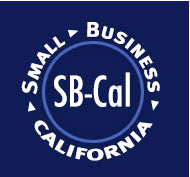Please see below some of the accomplishments of Small Business California for 2010. This is a partial list.
I think Small Business California has become a significant player for small businesses in Sacramento and Washington. If you are not a member please consider joining today.
The emails you receive from me I think keep you up to the minute on what is going on. Do any other organizations you belong to do this?
You can join by going to http://www.smallbusinesscalifornia.org/
Scott Hauge
President
Small Business California
2311 Taraval Street
San Francisco, CA 94116
shauge@cal-insure.com
415-680-2188
SMALL BUSINESS CALIFORNIA
• Educating California small businesses regarding legislation that impacts businesses in California. Educate government leaders regarding the quality of state services to small businesses. Educate state officials regarding the potential impact of legislation on small businesses. Create a forum for dialogue between state government and small business. Educate and assist small business in creating and complying with public policy and related matters.
• Small Business California has presented at numerous forums information on the Patient Protection and Affordable Care Act (PPACA) and how it impacts small businesses. These were for the Sacramento Journal, Rotary Clubs, Women’s League of Voters, and other community groups. Small Business California continues to be a frequent source for the media.
• Small Business California participated in a conference put on by the U.S. Treasury and the Small Business Administration on small business lending.
• Small Business California played a major role in the passage of the Small Business Jobs bill and was recognized by Speaker Pelosi for their efforts.
• Small Business California and President Scott Hauge was given the Distinguished Service Award for 2010 by the National Association of Government Guaranteed Lenders.
• Small Business California completed its annual survey with over 2700 responses from small businesses around the state. As in the past, this survey had responses from every county in the state. The survey is used to set Small Business California’s agenda and received media coverage around the state.
• Small Business California played a major role in the passage of the Health Exchange bills in California. Member Janet Hildreth spoke at the Governor’s signing ceremony.
• Small Business California has become a major source of information to the California Endowment on Small Business Attitudes towards the PPACA.
• Small Business California served on the Advisory Board of the Insure the Uninsured Project (ITUP). ITUP is a non-partisan organization that works with state government, community and business organizations and employers to increase healthcare coverage of California’s estimated 6.6 million uninsured.
• Board Member Laura Harris represented Small Business California on the Department of General Services Advisory Board.
• Small Business California is a member of the National Small Business Association.
• Small Business California worked together with CPUC and CA IOUs to continue to develop and improve On Bill Financing (OBF).
• Small Business California developed “Business Miles Financing” working with the Bay Area Quality Management District & Ecology Action to develop incentives for accelerating battery vehicle purchases by California businesses.
• Small Business California developed a weekly E-newsletter aimed at all California local Chambers of Commerce to help improve their ability to develop and participate in the CA clean economy.
• Small Business California has advocated for a fair, long-term reauthorization to the Small Business Innovation Research (SBIR/STTR) programs to advance the role of genuine small businesses in high-tech research. California is the leading recipient of SBIR awards. Currently, the SBIR program allocates 2.5% of the Federal extramural R&D budget to small technology businesses, accounting for over $2 billion a year in research dollars awarded to small companies. These dollars have been enormously productive in promoting technology innovation. For example, as of 2005, the SBIR program has generate over 87,000 patents, more than the entire university system, and with 1/20th of the research dollars. Fully 25% of R&D 100 Awards, given to recognize the 100 most important technology innovations each year, go to SBIR firms.
• Small Business California has strongly supported compromise legislation for SBIR
reauthorization passed in the Senate (S. 1233 SBIR/STTR Reauthorization Act of 2009 (Senators Landrieu and Snowe). The Senate bill proposes to extend the SBIR program until 2023 with a gradual, 0.1% per year increase in the SBIR allocation from 2.5% currently to 3.5% in 2020 (excluding the NIH program). The Senate bill offers a compromise on the contentious issue of the participation of large venture capital controlled companies in the SBIR program, allowing 18% of venture controlled large companies to participate in the NIH component of SBIR, and 8% of venture controlled large companies to participate in the SBIR programs of the remaining agencies. S. 1233 also makes a moderate increase to the standard award levels to $150,000 in Phase 1 and $1,000,000 in Phase 2.
• The House version of SBIR reauthorization has proposed to change the definition of a small business to include the subsidiaries of large venture capital firms, which may have hundreds of millions, if not billions of dollars under management (H.R. 2965 SBIR/STTR Reauthorization Act of 2009 (Rep. Altmire). Small Business California strongly opposes this takeover of a successful small business program by a narrow special interest.
• The SBIR program has been highly successful in fueling innovation genuine small businesses over the last 25 years, using the traditional definition of a small business as a company with fewer than 500 employees owned by individual in the United States. This definition includes the subsidiaries of investment companies where the total assets controlled by the parent add up to fewer than 500 employees. The SBIR program has never excluded investments by venture capital companies or major corporations in small high-tech firms, provided these large interests do not control the company.
Subscribe to:
Post Comments (Atom)



No comments:
Post a Comment